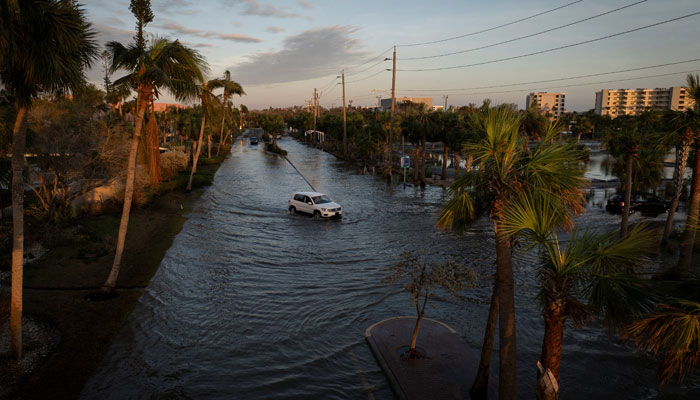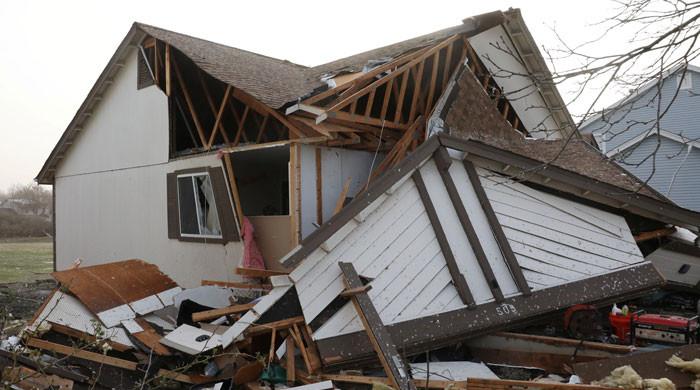WATCH: Livestream captures terrifying sight of monster Hurricane Milton from ISS
Video captured during livestream from space shows Hurricane Milton as ISS passed over Gulf of Mexico
October 11, 2024
A livestream feed from space captured a terrifying view of Hurricane Milton earlier this week, as the monster hurricane made landfall in Florida, United States and claimed the lives of over 10 people.
The CRS-30 mission, a SpaceX cargo launched to the International Space Station (ISS) earlier this year, included a payload called SpaceTV-1 — a set of 4K cameras from the space video streaming company Sen to be fastened to the station's exterior.
After being attached to the European Space Agency's Columbus module and pointed toward Earth, the cameras are sending back some breathtaking views, Space reported.
The video shows Hurricane Milton as the ISS passed over the Gulf of Mexico, nearly stretching across the entire visible portion of the Earth below.
Hurricane Milton sent tornadoes spinning across Florida, officials said Thursday as the state grappled with flooding, power outages and other woes from a milder than expected storm that many had feared would be catastrophic.

The hurricane blasted across the state late Wednesday before roaring into the Atlantic, leaving behind roads blocked by downed trees and power lines. It shredded the roof of a baseball stadium. Some three million homes and businesses were without power, AFP reported.
So far, though, it appeared that tornadoes, rather than floodwaters, have been responsible for the storm's deaths.
The footage gives "additional live views to those provided by NASA's High Definition video cameras already on the space station," according to a Sen press release.
The company's website features videos from the past several months taken from the ISS, as well as videos from a Sen satellite launched in 2019.











